Germany not just complicit but active participant in Israeli genocide in Gaza
By Reza Javadi
German authorities on Friday detained and deported Palestinian-British surgeon Ghassan Abu Sittah, known for his work in Gaza hospitals, who was invited to speak about his work and post-October 7 experience at a Palestinian conference in Berlin.
Abu Sittah took to X, formerly Twitter, saying he was being held at a Berlin airport and would not be able to attend the conference, where he was supposed to speak about the genocide in Gaza.
It was the latest instance of Germany making it explicitly clear which side it stands on – the side of genocide perpetrated by the apartheid regime in Tel Aviv.
Last week, Nicaragua dragged Germany to the International Court of Justice (ICJ) in The Hague for breaching the UN genocide convention by sending arms to the Israeli regime and ceasing funding of the UN's aid agency.
Pertinently, Germany is a significant arms supplier to Israel, with a substantial contribution of €326.5 million ($353.70 million) worth of military equipment and weapons in the past year alone.
This figure dwarfs the €32 million worth of lethal arms exports approved in the entirety of 2022.
Of this substantial sum of $353.70 million, approximately $22 million accounts for offensive weaponry, including 3,000 portable antitank weapons and 500,000 rounds of ammunition for various firearms. Notably, a majority of these exports received approval after October 7.
Germany's lethal arms exports to the occupied territories, especially following the events of October 7, have seen a tenfold increase, making it not only complicit but an active participant in the genocide unfolding in the besieged Palestinian territory.
In its case against Germany, Managu revealed Berlin’s “pathetic” face in providing a raft of military support to the Israel regime amid a devastating war on the besieged territory.
Facilitating and participating in the genocide
Nicaragua's case holds Germany responsible for facilitating the war of genocide against people in Gaza by providing substantial military aid to Israel while ceasing funding to the UN's aid agency.
In a scathing presentation, Nicaraguan lawyer Daniel Mueller condemned Germany's dual approach of offering humanitarian aid while supplying weaponry used in the killing of Palestinian civilians.
“It is indeed a pathetic excuse to the Palestinian children, women, and men to provide humanitarian aid, including through airdrops, on the one hand, and to furnish the military equipment that is used to kill and annihilate them... on the other hand,” Mueller told the top UN court.
“By sending military equipment and now defunding UNRWA..., Germany is facilitating the commission of genocide and is failing in its obligation to do everything possible to prevent the commission of genocide,” Nicaragua’s 43-page submission stated.
The death toll in the Gaza Strip now tops 33,600, including 75 percent women and children. The arms supplied to the Israeli regime by Western states, including Germany, have killed Palestinians.
The plea to halt German weapons sales and reinstate funding to UNRWA underscores the gravity of Germany's role in facilitating and participating in the genocide of Palestinians.
“Germany’s failure is all the more reprehensible for Israel given that Germany has a self-proclaimed privileged relationship with it, which would enable it to usefully influence its conduct,” Nicaragua’s appeal at the ICJ stated.
Speaking as the trial opened, Alain Pellet, a lawyer for Nicaragua, said it was “urgent that Germany suspend continued sales” to the apartheid, child-murdering regime.
“Germany was and is fully conscious of the risk that the arms it has furnished and continues to furnish to Israel” are used to commit genocide, he told judges.
The case presented to the court by Nicaragua echoed concerns raised by South Africa earlier, highlighting the urgent need for action to stop the Israeli killing machine.
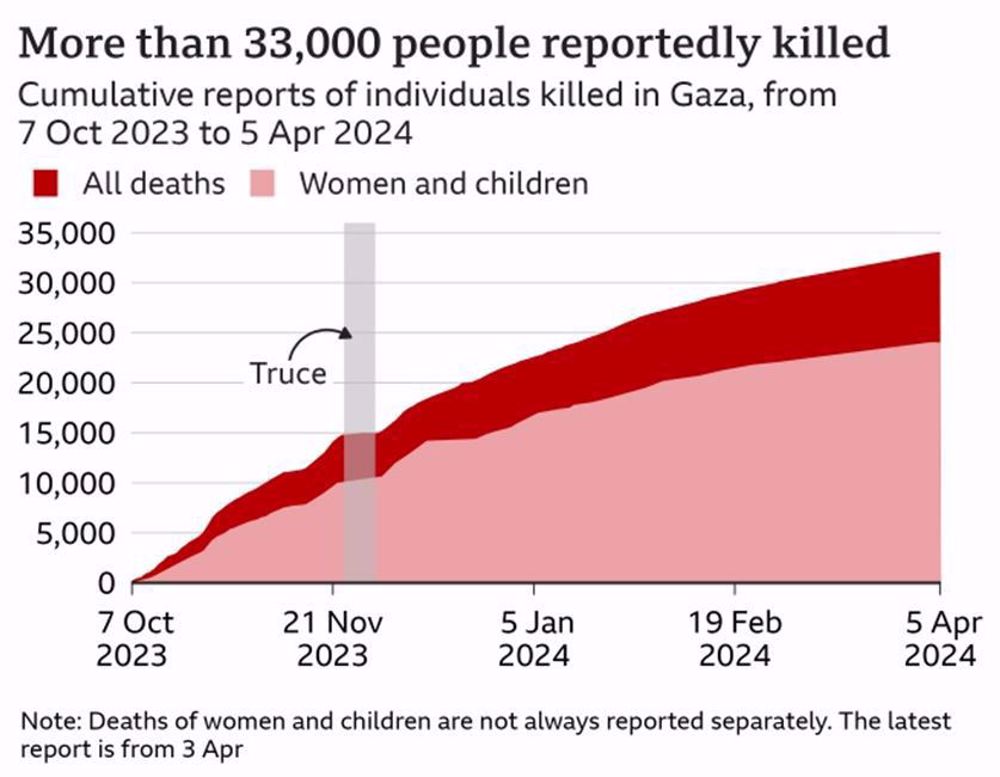
German Chancellor Olaf Scholz, a staunch supporter of the Israeli war on Gaza, faces growing opposition within the country over his government’s arms sales to Israel amidst the ongoing genocidal war.
German government faces internal opposition
Recently, around 600 senior civil servants penned a letter urging Scholz and his administration to immediately halt arms shipments to the Israeli regime as it violates Germany's own constitution.
“Israel is committing crimes in Gaza that are in clear contradiction to international law and thus to the Constitution, which we are bound to as federal civil servants and public employees,” read the letter that was shared widely on social media.
In addition to calling for an end to arms exports, the letter demanded that the German government exert pressure on Israel to cease its aggression on Gaza, resume funding for the United Nations Relief and Works Agency for Palestine Refugees (UNRWA), and actively advocate for the recognition of a Palestinian state within the 1967 borders.
The signatories chose to remain anonymous, citing a "climate of fear" within the civil service, where dissent is met with severe state-sanctioned repression, including arrests and prosecution.
One initiator described the current situation in Germany as "utterly lawless," expressing fear of not only losing employment but also facing imprisonment for speaking out against the government's stance on Palestine.
“There are no rights in Germany at the moment when it comes to Palestine,” the initiator was quoted as saying.
“We wrote this letter because …. this scale of destruction and violence, the atrocities we are seeing are unprecedented in recent times. This is a huge threat to all of our democratic systems if we justify killing thousands of children,” the initiator said, adding that senior ministers were creating a “collective governmental gaslighting of what we are seeing on the ground”.
Joining the chorus of putting pressure on Germany to stop arms exports to Israel, Human rights lawyers in Germany have taken legal action against the government's military support of Israel, filing an urgent court appeal to halt arms exports in compliance with Germany's War Weapons Control Act.
The lawsuit, initiated by organizations such as the European Legal Support Center (ELSC), Law for Palestine, and the Palestine Institute for Public Diplomacy, was on behalf of Palestinians in Gaza and challenged Germany's arms supplies to Israel in violation of the War Weapons Control Act.
Citing the International Court of Justice's directive for Israel to prevent genocide in Gaza, the lawyers argued that Germany's support contradicts its legal obligations.
The legal proceedings target the federal ministry for economic affairs and climate action, responsible for issuing export licenses under the War Weapons Control Act, particularly under the Green Party's leadership.
Germany’s arms supplies violate international law
The European Center for Constitutional and Human Rights (ECCHR), one of the lead litigants, asserted that Germany's actions breach international agreements, including the arms trade treaty, the Geneva Conventions, and the genocide convention, all ratified by Germany.
“It is reasonable to believe that the German government violates the arms trade treaty, the Geneva Conventions and its obligations under the genocide convention – agreements that have been ratified by Germany,” said the statement by ECCHR.
Wolfgang Kaleck, general secretary of ECCHR, emphasized the importance of upholding international law and human rights in German foreign policy, stating that adherence to legal principles is “fundamental” for maintaining values.
“A basic prerequisite for a rules-based and human rights-oriented German foreign policy is respect for the law in its own decision-making. Germany cannot remain true to its values if it exports weapons to a war where serious violations of international humanitarian law are apparent,” Kaleck was quoted as saying.
Lawyer Ahmed Abed highlighted the possibility of revoking arms exports if there is evidence that the weapons contribute to violations of international law, expressing optimism for a swift ruling within the coming weeks.
"Just the assumption is sufficient — that the weapons are used to commit acts that violate international law — to revoke arms exports under the Act," Abed told a news conference in Berlin on Friday.
Calls for arms embargo on Israel gain momentum
The campaign for an international arms embargo on Israel has gained traction in recent weeks, with support extending from Algeria to Vietnam in a vote at the United Nations' top human rights body.
Notably, two key suppliers of Israel's imported weapons, the United States and Germany, opposed the nonbinding resolution at the UN Human Rights Council.
In 2023, Germany accounted for approximately 30 percent of Israel's military equipment purchases, while over 65 percent came from the US, highlighting their significant role in Israel's armament.
An analysis by the Stockholm International Peace Research Institute (SIPRI) revealed that the United States and Germany collectively supply over 95 percent of Israel's imported arms.
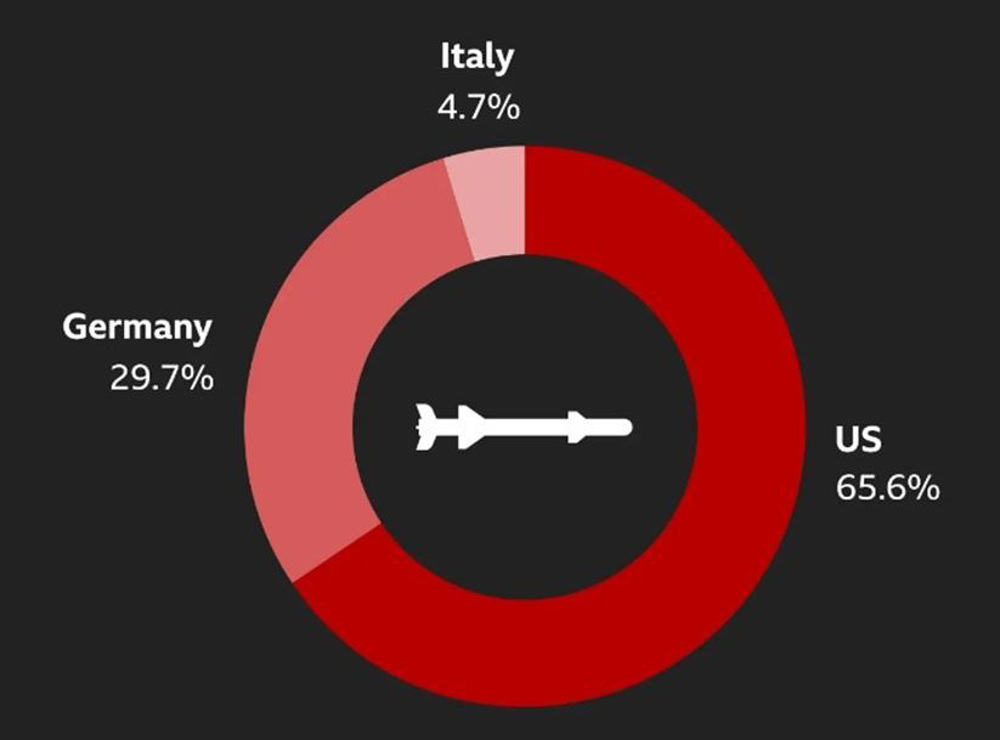
Several governments, including those of Belgium, Canada, Italy, the Netherlands, and Spain, have halted arms sales to Israel due to concerns about violations of international humanitarian law.
In February, Japan's Itochu announced the termination of its partnership with a major Israeli arms contractor following a ruling by the International Court of Justice.
In Denmark, human rights groups have taken legal action to prevent the export of weapons and military equipment to Israel, while French lawmakers have urged President Emmanuel Macron to implement a similar measure.
Arms-control scholar Jennifer L. Erickson suggests that the European Union could enforce a bloc-wide arms embargo, but this would require consensus among all member states, including Germany.
Germany is a signatory to the UN Arms Trade Treaty, which could prohibit the sale of certain arms to the Israeli regime if there is a risk of them being utilized to violate international humanitarian law. Additionally, domestic legislation could impose further restrictions.
Professor Michael Fakhri, the UN special rapporteur on the right to food, in an interview with the Press TV website last month, called for an arms embargo on the regime.
“Countries should impose a weapon embargo and economic sanctions against Israel. Countries currently supplying weapons to Israel are complicit in genocide and starvation,” he said.
VIDEO | An unchecked presidency
VIDEO | Deportations strain Afghanistan’s fragile economy
‘Full-scale atrocity’: Iran security body reports 2,427 martyrs in US-Israeli-led riots
Smallest coffins are the heaviest: The three youngest victims of foreign-backed riots in Iran
Hamas warns of ‘systematic Israeli violations’ as Gaza ceasefire teeters
Israeli strikes kill 11 across Gaza, including children and journalists: Palestinian medics
US forces transferring Daesh prisoners from Syria to Iraq: CENTCOM
Press TV's news headlines


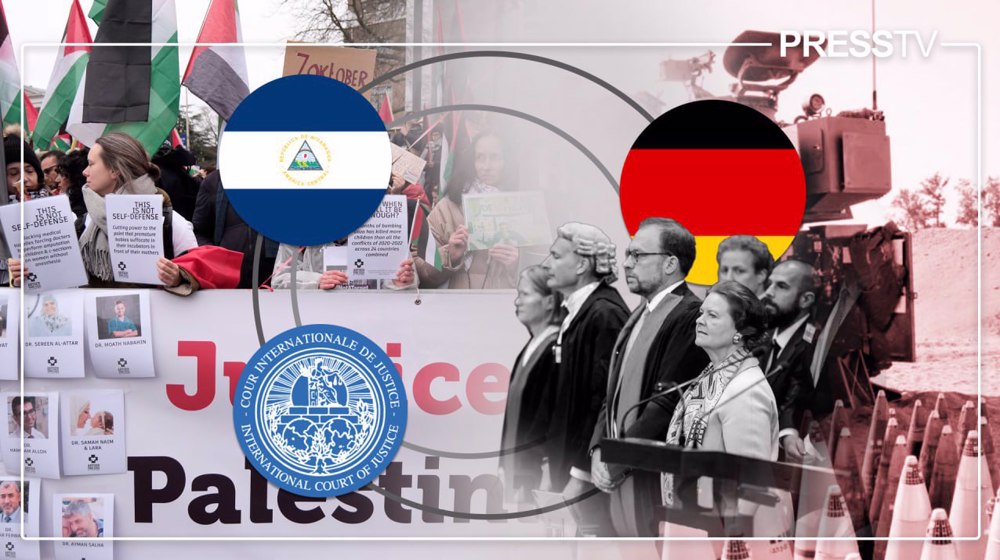

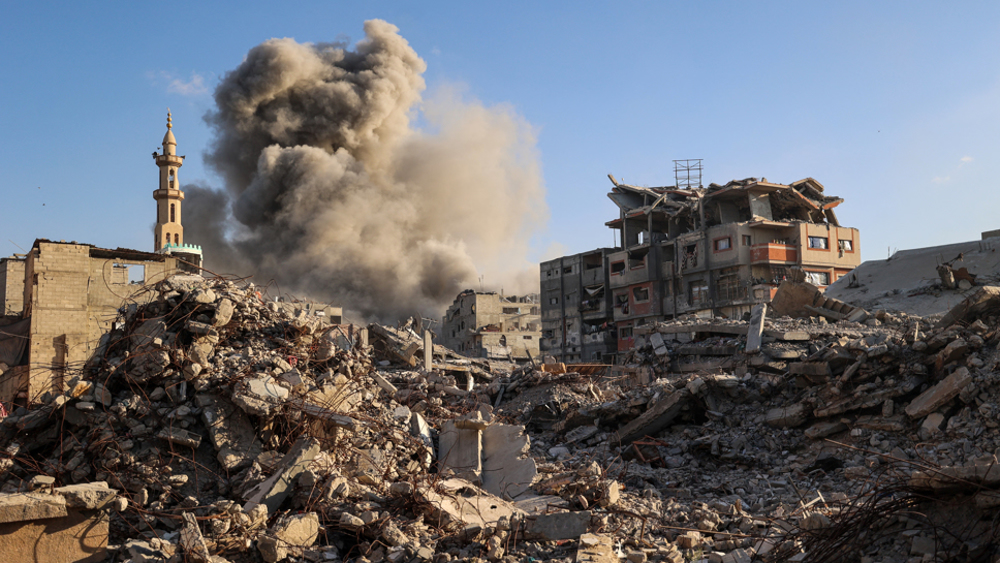





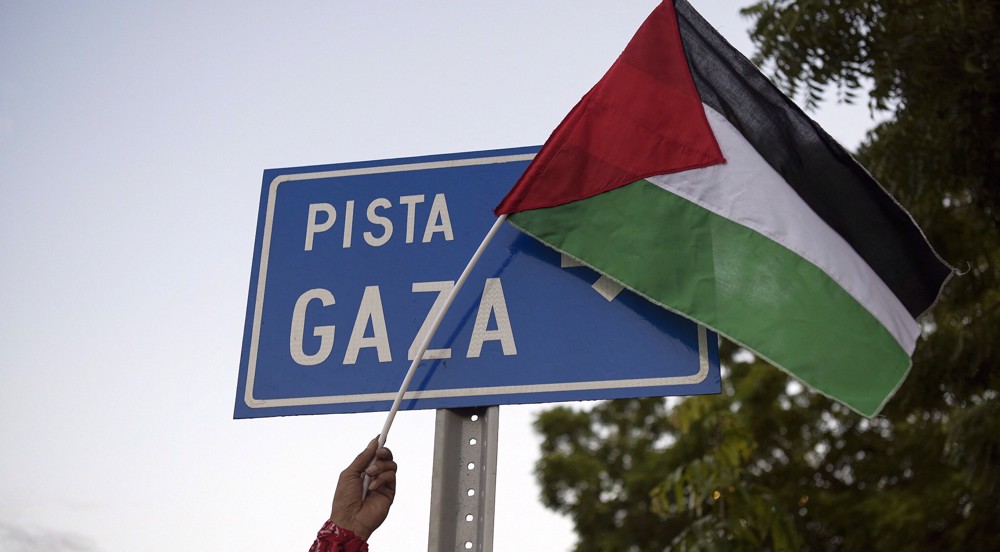
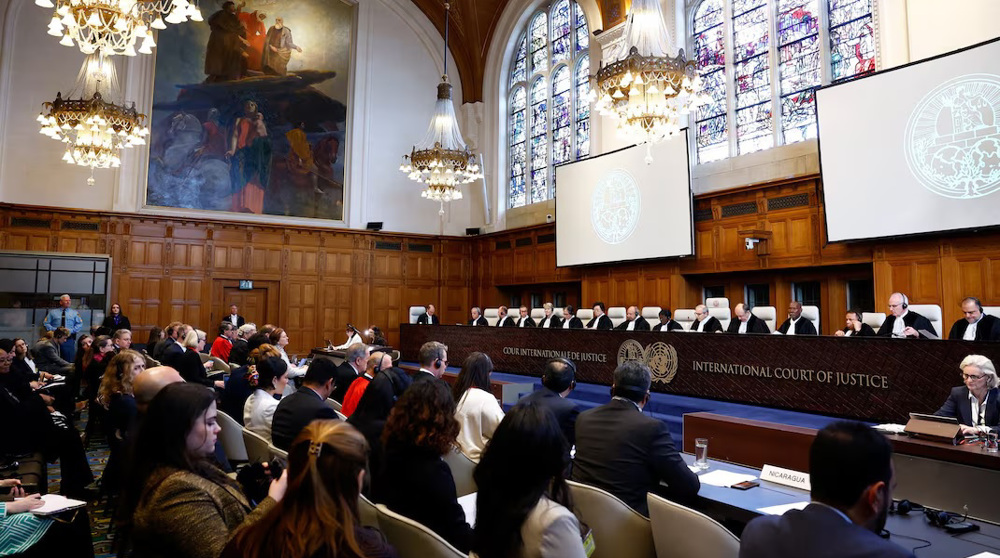
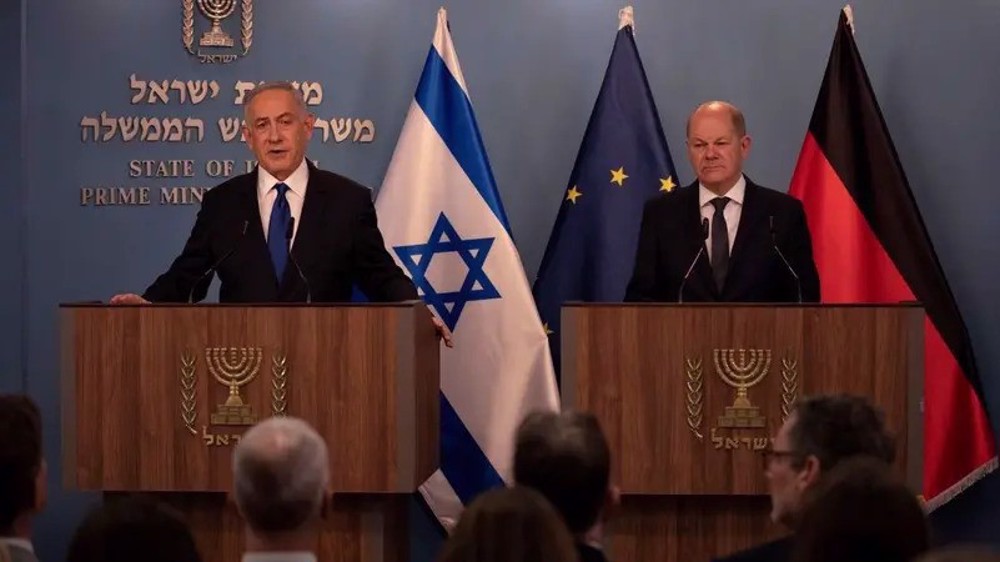
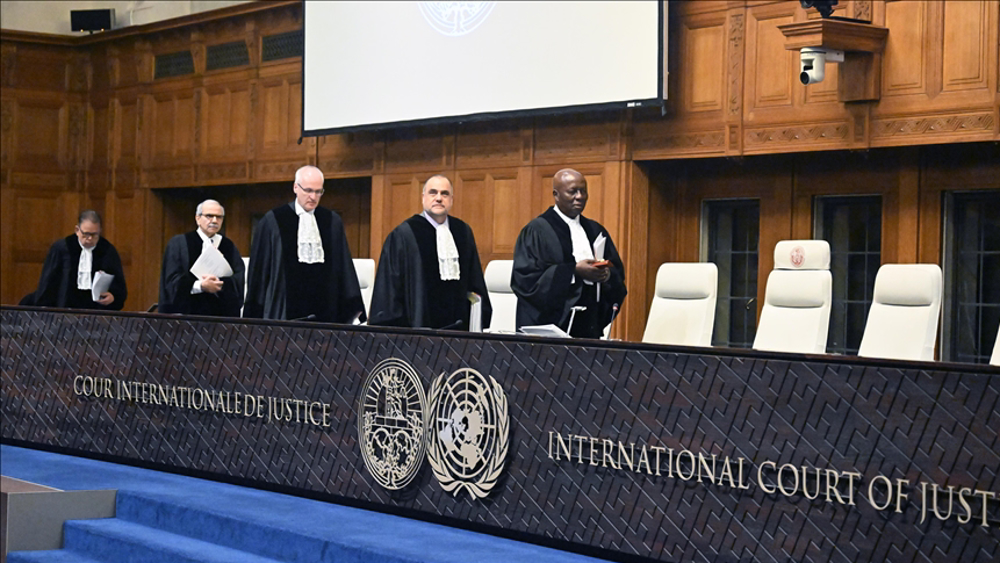
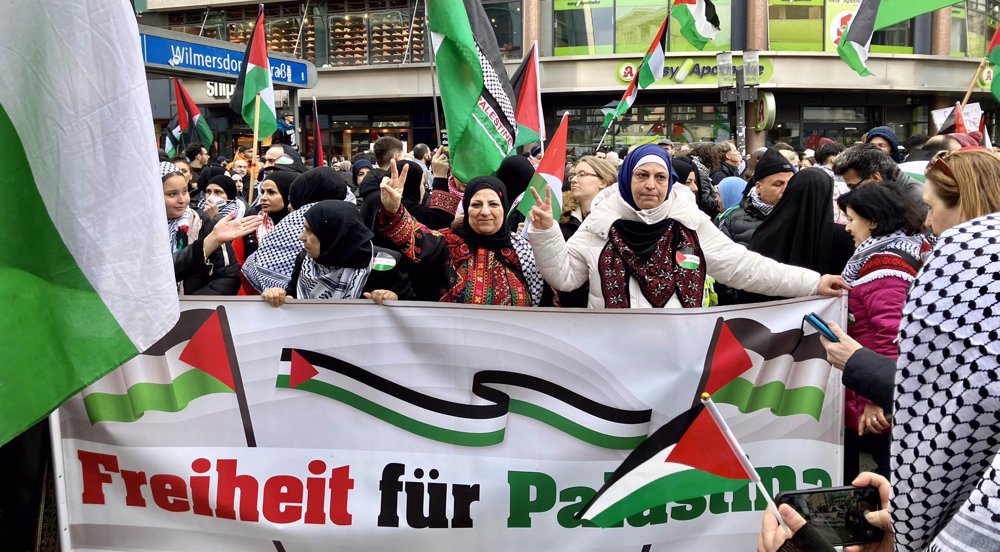

 This makes it easy to access the Press TV website
This makes it easy to access the Press TV website